Hundreds of 'lost ponds' restored on Essex farms
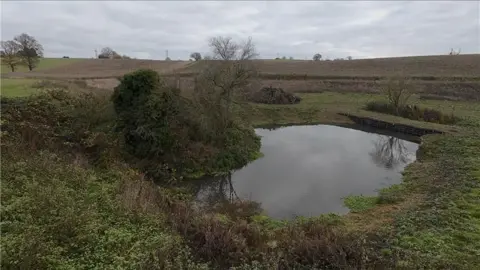 Jamie Niblock/BBC
Jamie Niblock/BBCA project involving farmers and nature conservationists is celebrating the restoration of 400 "lost" farmland ponds in Essex.
A century ago there were more than 17,000 in the county.
Today only 3,500 survive in good condition, with a similar number needing restoration.
Essex Wildlife Trust, the RSPB, Farming & Wildlife Advisory Group East and farmers have joined forces to reinstate them.
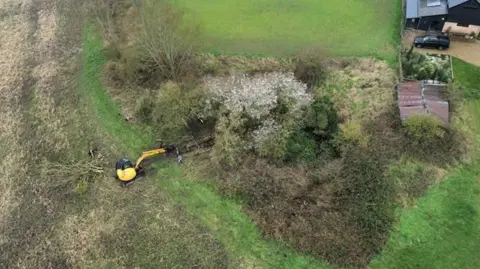 Jamie Niblock/BBC
Jamie Niblock/BBCMaps from the end of the 19th Century show a patchwork of ponds on farmland in the county.
Essex Wildlife Trust says many were lost during the post-World War Two period when farming practices changed and hedges were ripped out to make larger fields.
Others were lost after trees and vegetation were allowed to grow unchecked, causing them to dry out.
'A quick win for wildlife'
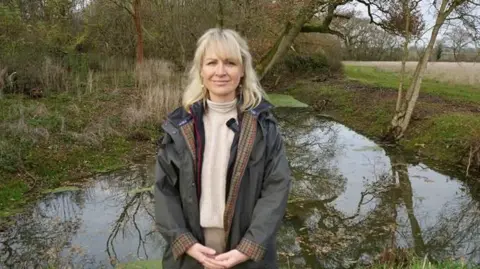 Jamie Niblock/BBC
Jamie Niblock/BBC“They are a quick win," said Emma Gray, of the North Essex Farm Cluster.
"They can be restored on marginal land that is producing crops so we're not taking away from food production but we’re creating these fantastic habitats.
"Lots of farmers have diggers and excavators, so we offered a training day with Essex Wildlife Trust and the RSPB for farmers to come along, get trained and really know how to effectively restore ponds."
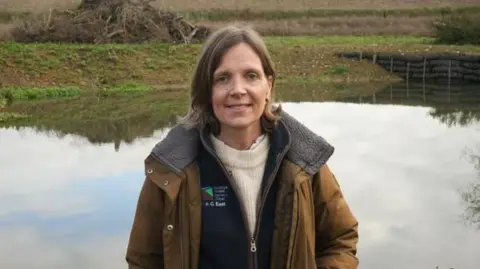 Jamie Niblock/BBC
Jamie Niblock/BBCJilly McNaughton, of Farming Advisory Action Group East, said landowners had got behind the scheme.
"There are a variety of sources of funding, including conservation payments from housing developers and grants from water companies and agri-environment schemes," she said.
"There's a huge appetite among the farming community to put back something of lasting value, and that's what these habitats are."
'Just the beginning'
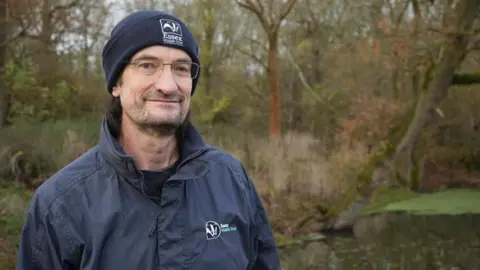 Jamie Niblock/BBC
Jamie Niblock/BBCVolunteers from the wildlife trust are trained to map lost ponds on farms and give farmers advice about how to restore them.
The trust's Darren Tansley said: "Ponds are small but they have a disproportionate effect on the wildlife around them.
"Everything needs water. Farmland birds, amphibians, mammals come down to drink at these ponds so they are vital areas of water across a landscape that is otherwise quite dry over the summer.
"What we are trying to do here is create an Essex 'pondscape'. This is just the beginning. We’ve got thousands more to do."
Follow Essex news on BBC Sounds, Facebook, Instagram and X.
